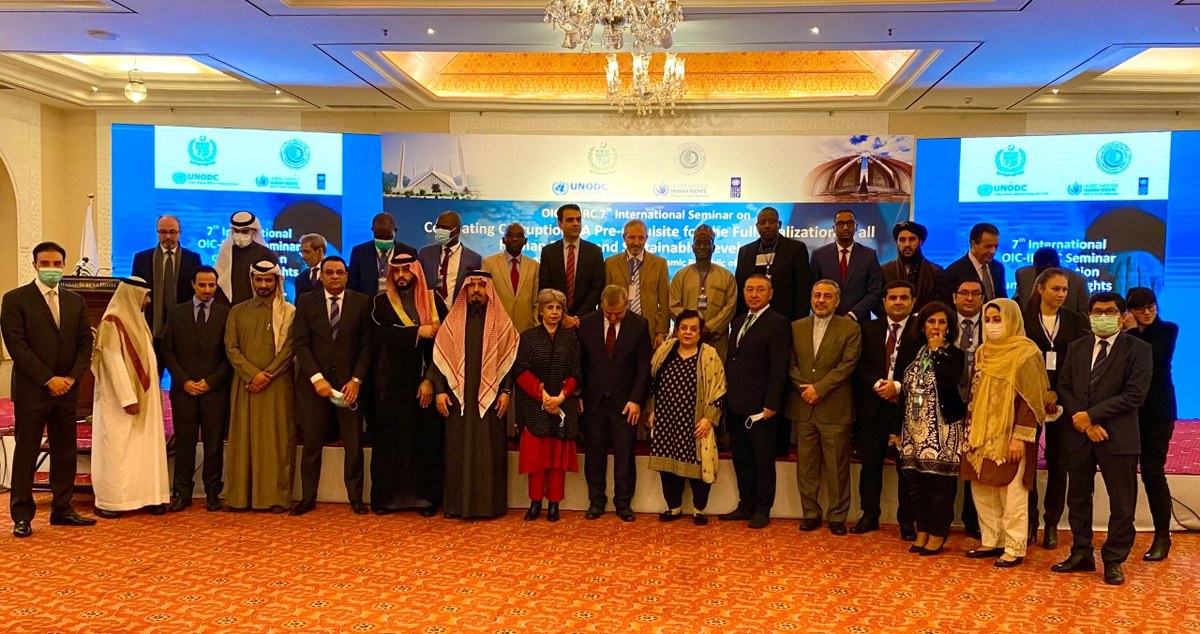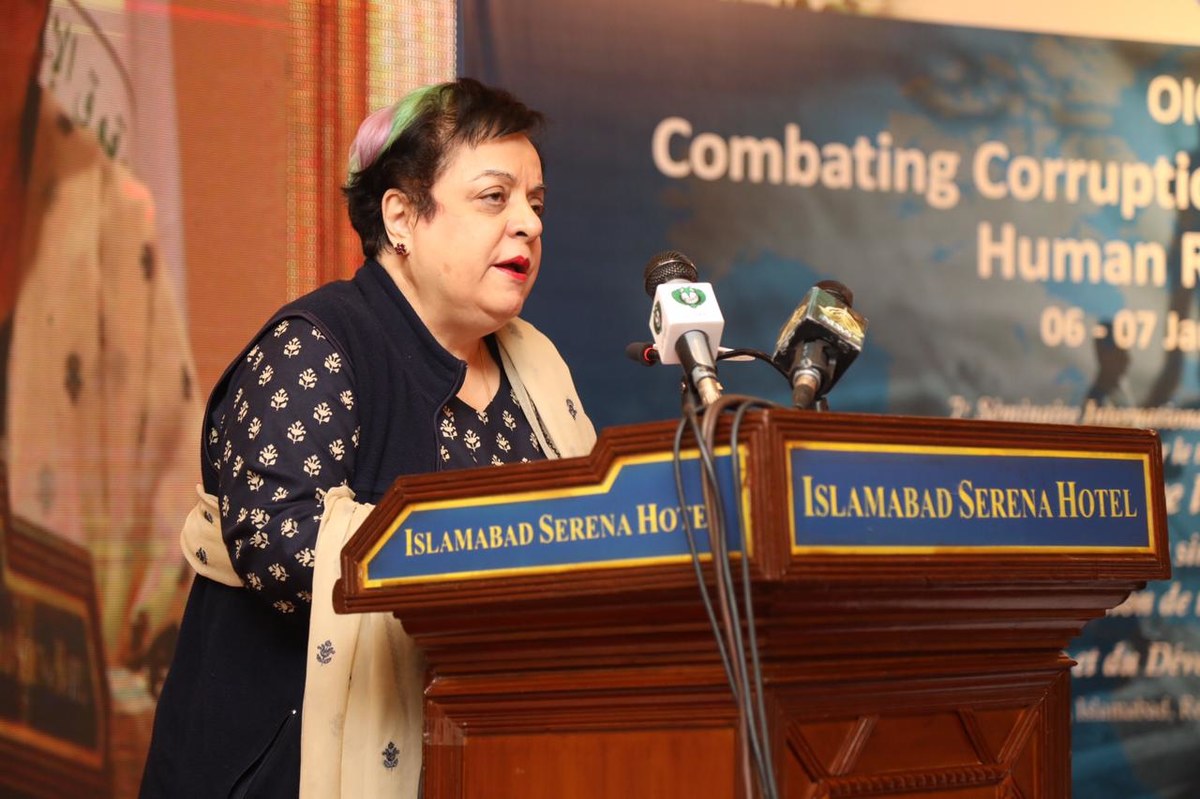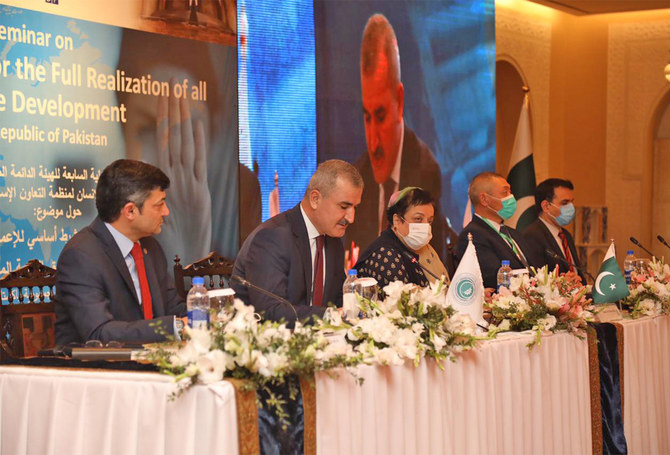ISLAMABAD: The Organization of Islamic Cooperation (OIC) Independent Permanent Human Rights Commission (IPHRC) on Friday urged member states to strengthen institutional mechanisms by establishing fully equipped, empowered and independent accountability institutions, enhancing the capacity of the judiciary, prosecution services and law enforcement agencies to combat corruption across the Muslim world.
OIC-IPHRC and the Pakistani government organized a two-day seminar on ‘Combating Corruption – A Prerequisite for the Full Enjoyment of all Human Rights and Sustainable Development’. Over 200 representatives of international organizations, including the Office of the High Commissioner for Human Rights (OHCHR), the United Nations Office on Drugs and Crime (UNODC) and the United Nations Development Program (UNDP) attended the seminar.
“This declaration encouraged all OIC member states to establish fully equipped, empowered and independent accountability institutions, which are capable to investigate crimes of corruption, including sophisticated transnational crimes, in an independent and impartial manner,” the Islamabad Declaration’s statement read at the end seminar’s conclusion.
The seminar laid stress on providing training, with adequate resources, to personnel to ensure the implementation of various laws relation to anti-corruption.
“The Islamabad Declaration urged all OIC States to undertake accelerated actions to combat corruption in a comprehensive manner through strengthening the legal frameworks, with human dignity at the heart of policies, to address existing structural disadvantages and inequalities which reflect both causes and consequences of various forms of corruption in respective societies and systems,” Dr. Haci Ali Acikgul, chairperson of the OIC-IPHRC, told Arab News.
“No country alone can combat corruption, it requires cooperation at the national, regional and international level,” he said, adding that during the seminar inputs were obtained from UN agencies, OIC member states and other international experts.
All of these inputs, he said, combined to make up the Islamabad Declaration against corruption.
“It is a very important document. I hope these efforts will raise awareness among member states and the international community, especially through civil society and media,” Acikgul said and emphasized that “corruption is the main epidemic in full realization of human rights.”
Islamabad Declaration called for the mobilization of all relevant national mechanisms to fight corruption in close cooperation with media, religious institutions and civil societies while ensuring that victims and all those involved in reporting, investigating and prosecuting corruption are protected from intimidation and harm.
It stressed on establishing accessible, visible and independent channels to report corruption and introducing procedures that enable all individuals and groups to demand action when their rights are suppressed due to corruption.

A group photo of the participants of the two-day seminar “Combating Corruption – A Prerequisite for the Full Enjoyment of all Human Rights and Sustainable Development,” organized by organized by OIC-IPHRC and Pakistani government, in Islamabad, Pakistan, on January 7, 2022. (AN Photo)
The Islamabad Declaration called upon the international community to translate the global focus on human rights protection and Sustainable Development Goals (SDGs), which has been a central issue for international cooperation, into concrete, measurable actions on the ground to effectively address transnational corruption.
“Recovering and returning confiscated assets and illicit financial flows, in accordance with UNCAC, can contribute to effective resource mobilization, poverty eradication, sustainable development and the enjoyment of all human rights, particularly for developing countries,” the declaration statement added.
It also encouraged member states to cooperate with international partners to reinforce efforts and resources to assist in implementing integral measures that end corruption, enhance accountability and contribute to the promotion and protection of human rights.
Pakistan’s ministry for human rights Dr. Shireen Mazari said OIC has immense power to mobilize collective efforts to combat corruption.
“OIC can play a very strong role internationally to stop corruption, illegal flow of money and money laundering,” she told Arab News.

Pakistan's minister for human rights, Dr. Shireen Mazari, address the seminar on ‘Combating Corruption – A Prerequisite for the Full Enjoyment of all Human Rights and Sustainable Development’ in Islamabad, Pakistan, on January 7, 2022. (UNDP)
She commended OIC-IPHRC for gathering experts from across the world.
“It has been informative for all participants and helpful in combating the menace of corruption in the Muslim world through an effective anti-corruption framework and methodology,” she said.
















